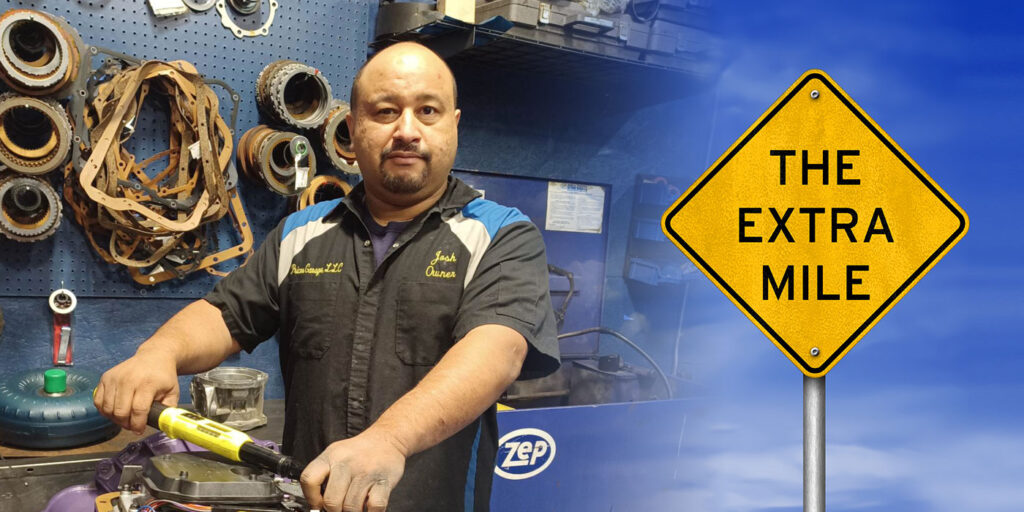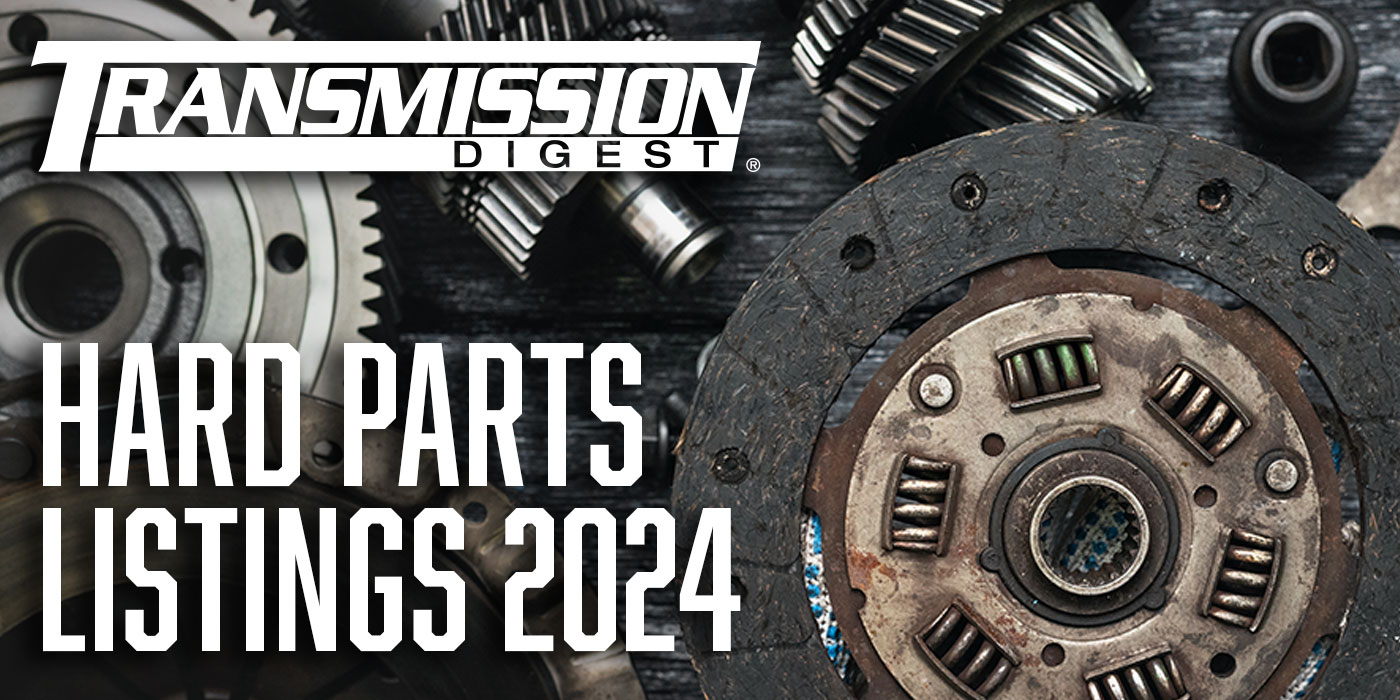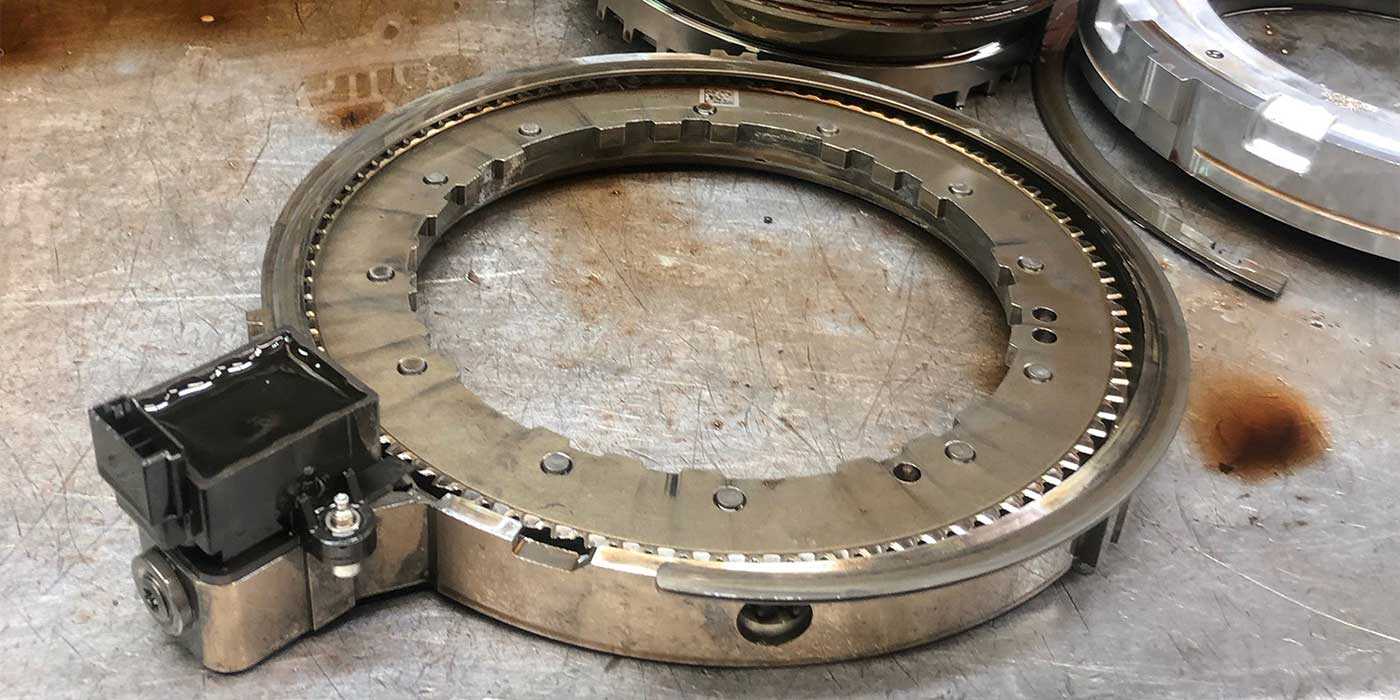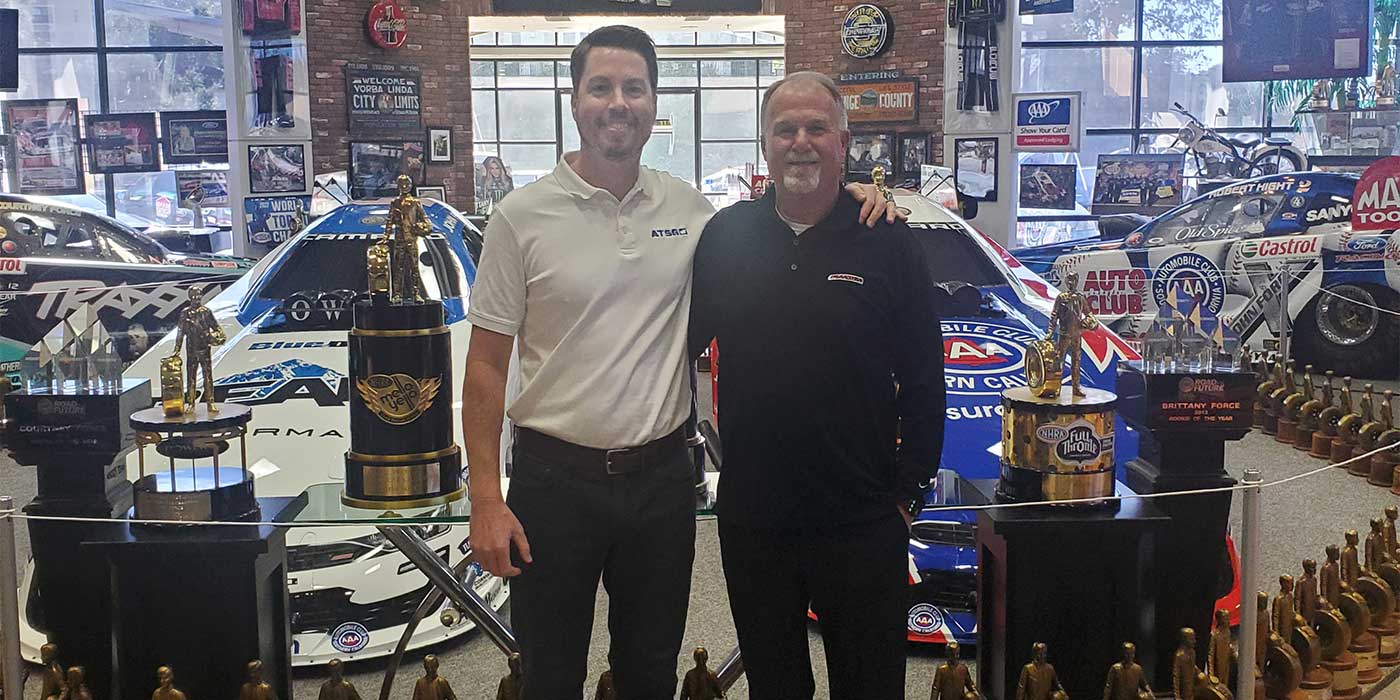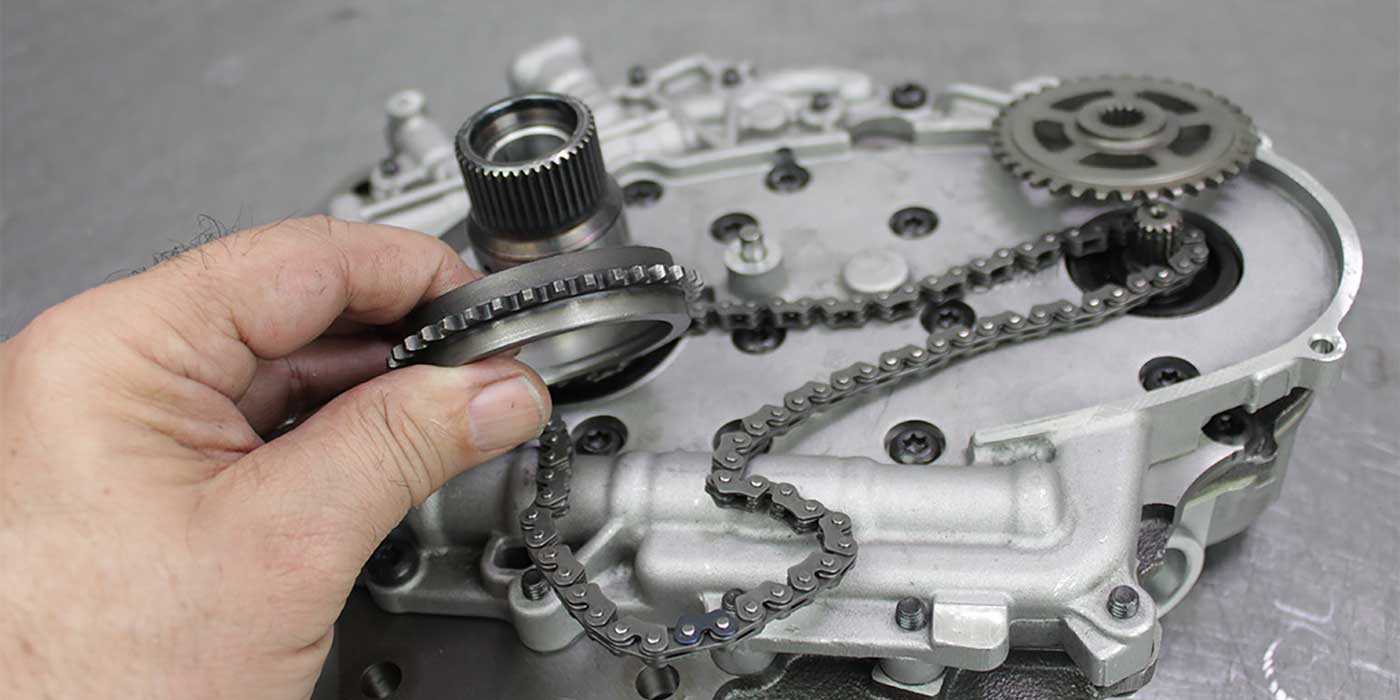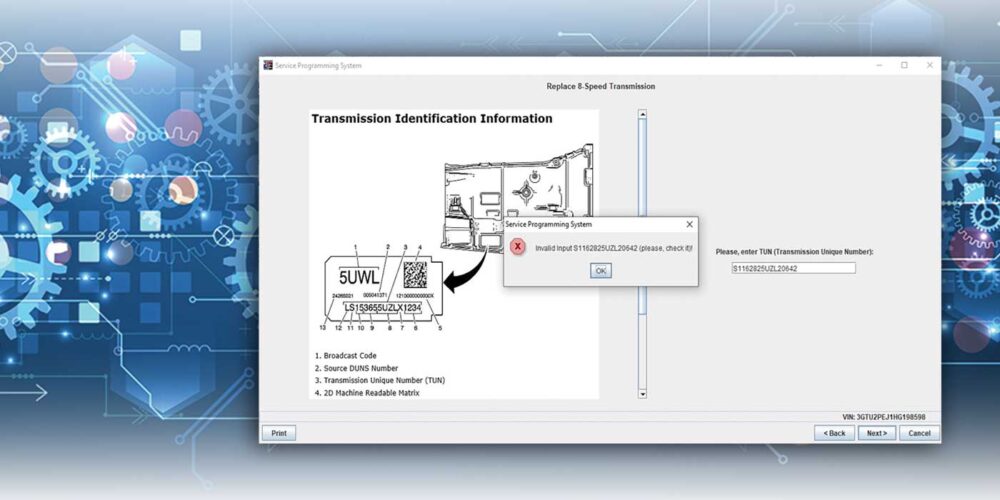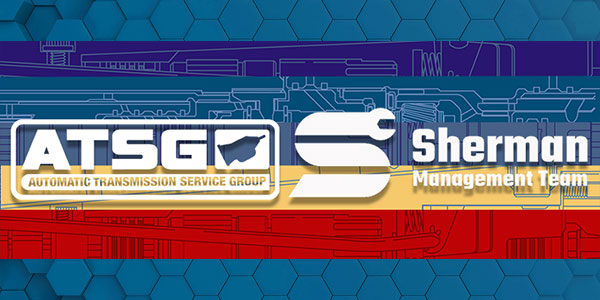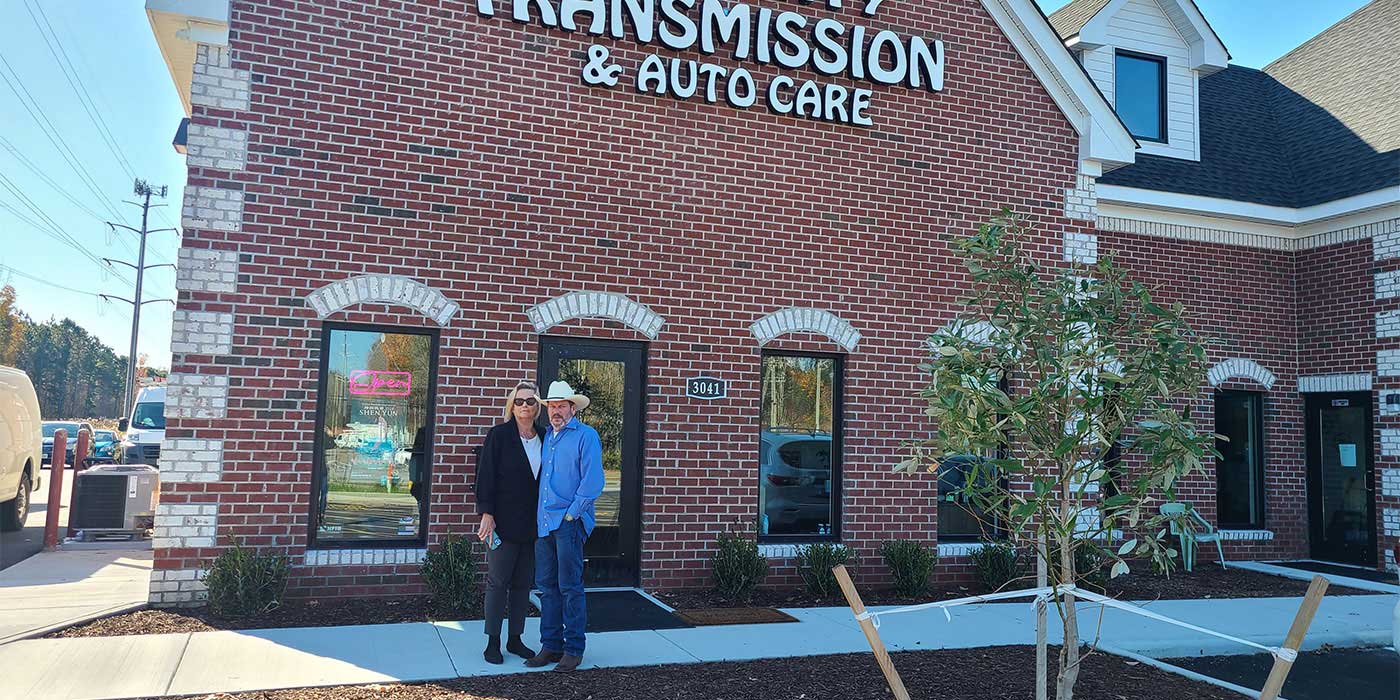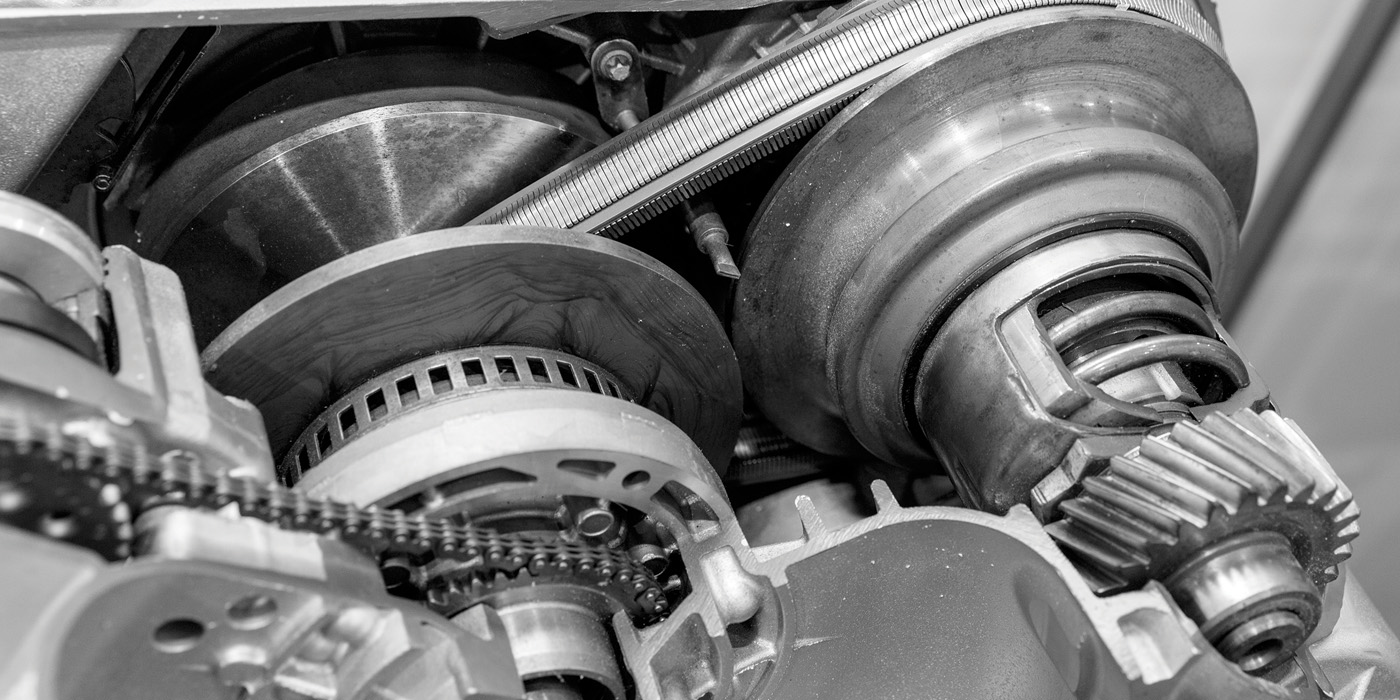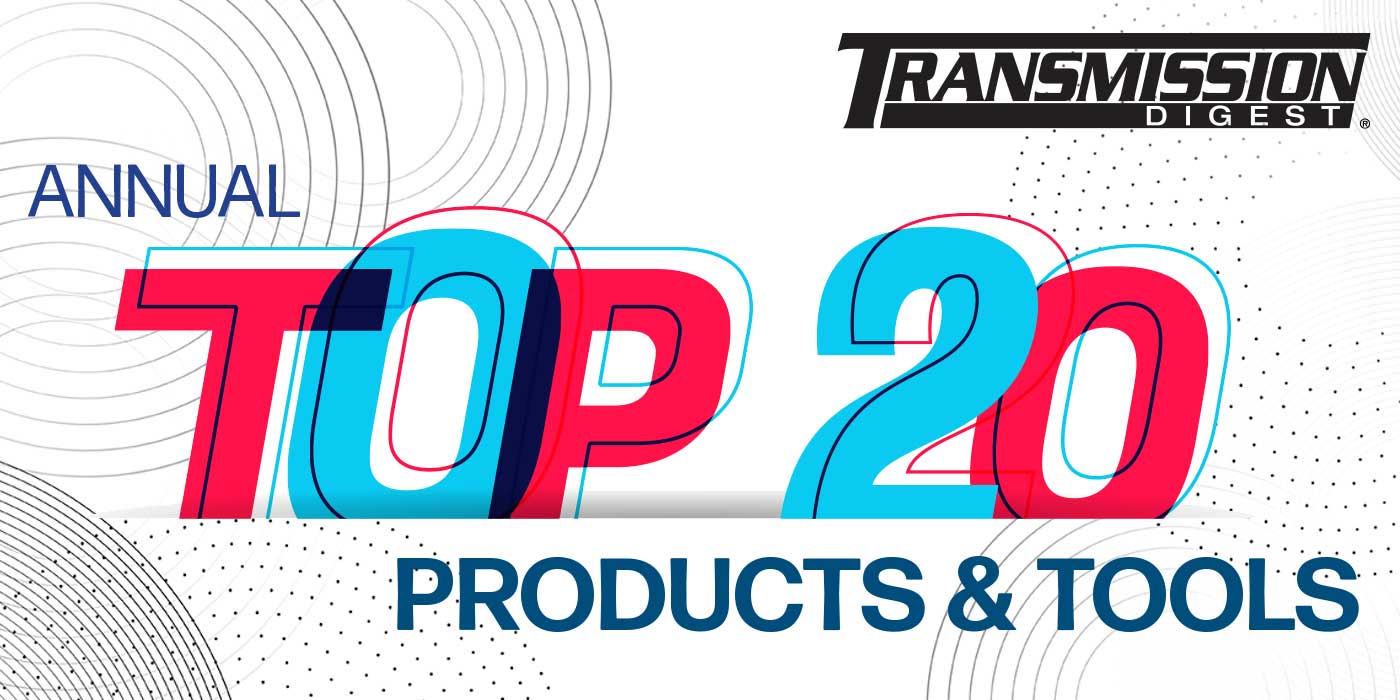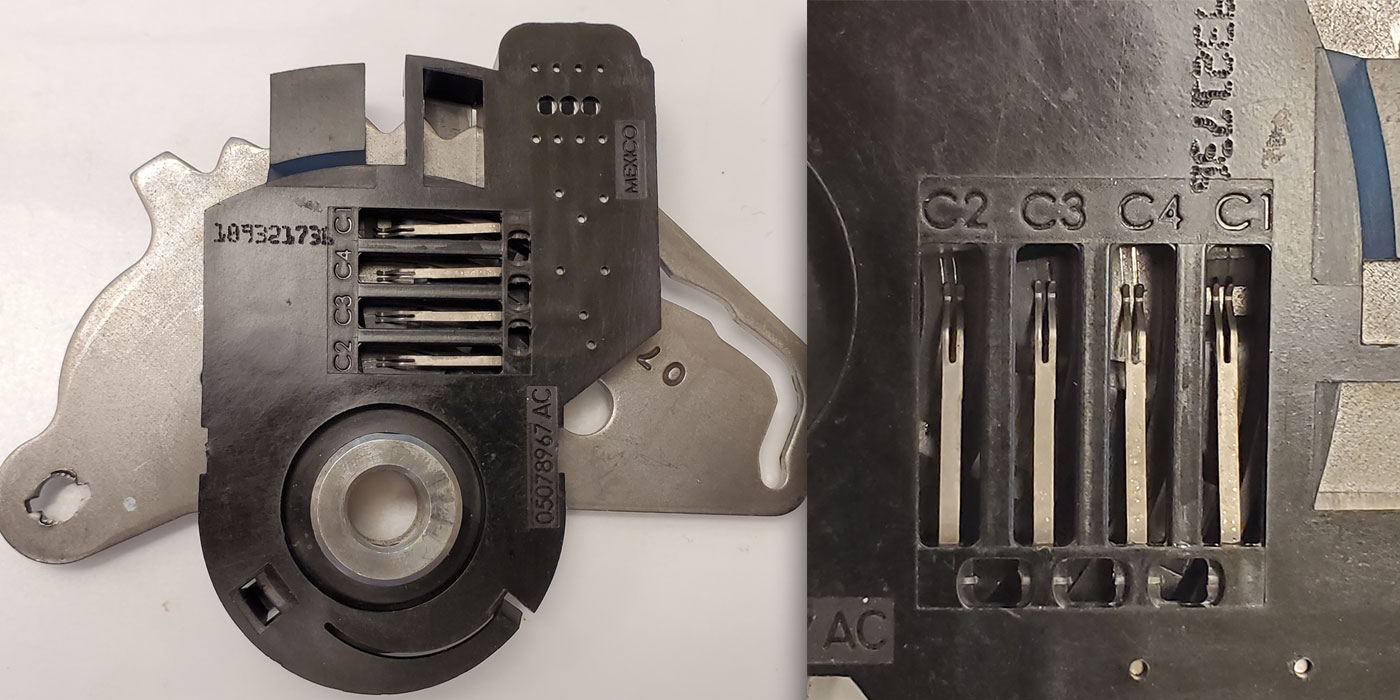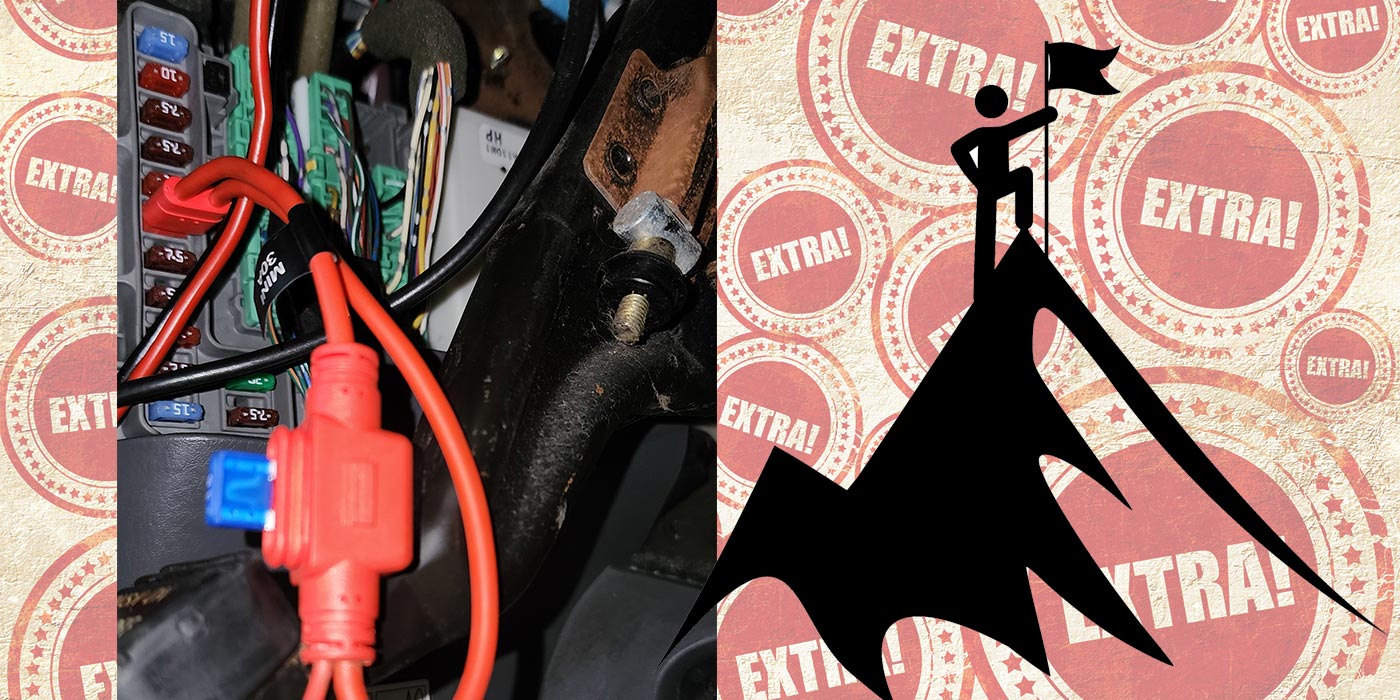Joshua Price grew up in the transmission industry — so much so that he used to take copies of this very magazine to school with him.
“I’ve been in this business my whole life,” he says. “My dad had a transmission shop; he was in business from 1967 to 2008.”
Bob Price’s shop was called Pro Transmission.
“His business was a really good business. Actually, it was family owned. He and my mom ran it. I grew up working for him and spent all through my teens and twenties working for him.”
Unfortunately, Joshua’s mom got sick in the 2000s, and the costs of her healthcare, plus the economic crash of 2008 and an illness of Bob’s own ended up driving them out of business.
“That was a rough time in the industry and just a rough time all the way around. But we bounced back,” Joshua says.
“When he closed, I bounced around a couple other shops and eventually started my own place. I opened up Price’s Garage in 2012 and then we actually moved to our current location last year.”
The new shop came about as a result of a need for more space. And in a bit of a coincidence, Joshua’s father’s shop briefly operated out of the very same space in the ‘80s; Joshua even found some of his dad’s writing on a wall in a back room when he was doing renovations.
“In the 10 years that I’ve been in the business myself, I started out in an old two-bay gas station and then we went to another shop that was a little bit larger,” he shares. “It was off the beaten path. And then this came up on a main road and it’s a pretty nice building. It was a big gamble but it really seemed to work out for me.”
The current iteration of Price’s Garage is a three-bay shop that Joshua says can fit six cars comfortably thanks to lifts. Joshua has two full-time employees and one part-time guy who helps in the evening. For his part, Joshua is the owner, the builder and runs the office.
“Gosh,” he says, “I wear a lot of hats in this shop.”
There is a bit of general repair done at Price’s Garage, but for the most part they are transmission specialists.
“We do mostly automatics,” Joshua says, “but we do some standards and differential work. And then we’ll do some little bit of general repair in between, but I try not to push out as much as I do the transmissions.”
Price’s Garage does work on engines as well, mostly engine replacement.
“I try to stay away from too much internal engine work. It just takes too much time.”
Read more of TD’s Shop Profiles here.
Clarksburg, West Virginia, where Price’s is located, is a small city in the northwestern part of the state with a population of just over 16,000 (down from its heyday of 32,000 in 1950) that Joshua describes as being “10, 15 years behind the times.
“It’s just a small town that’s just now starting to grow,” he explains, “and the problem that you see with a lot of the shops in this area is that they’re still stuck 20 years back, under-pricing jobs. A lot of my customers get sticker shock when they’re seeing newer Silverado work for five grand for a rebuild when they’re used to paying $800 a few years ago for it, even though it’s two different transmissions.
“But it’s a small community and it’s one of those where everybody knows everybody, so word of mouth will either make you or break you.”
Joshua believes that Price’s has built up a good word-of-mouth reputation.
“I mean,” he says, “my dad always had a great reputation in this town, and so following that I’ll try to go the extra mile to help people and try to do something a little bit better than what they’re expecting.”
As you might expect, Joshua learned a lot of lessons from his dad on how to run a transmission shop; his dad actually joined him to work at Price’s Garage in 2011. Mainly, Joshua says, these lessons centered on doing the job right.
“He didn’t like patching a transmission,” Joshua says. “He wanted to build them correctly and with precision.
“He was just an honest person. Everybody in the town liked him. He would just do everything that he could to keep his business going. He tried to stay up with the newest stuff until he got older. I mean, he was 78 when he actually retired. He was in the business for over 50 years.”
The challenges and the successes
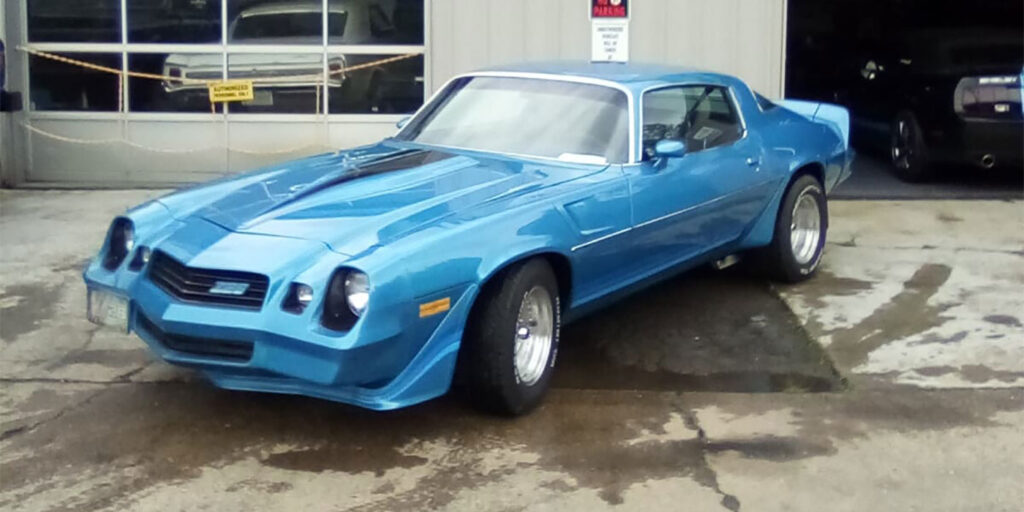
The following sentence from Joshua will be familiar to anyone who owns or manages a shop: “The biggest challenge right now I’m facing is trying to find qualified help.”
It’s a familiar struggle across the industry. Price’s relies on word of mouth and internet listings to find help.
“I’m awfully fortunate that I’ve got two good guys,” Joshua says. “I had to hire one from a Chevy dealership 30 miles away to get him.”
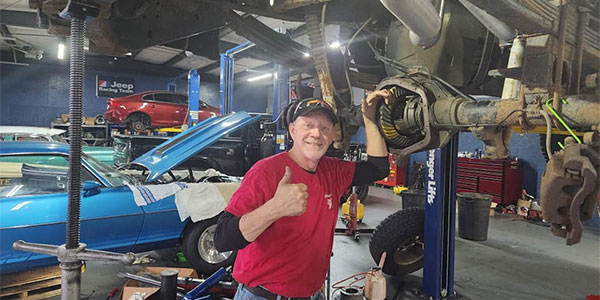
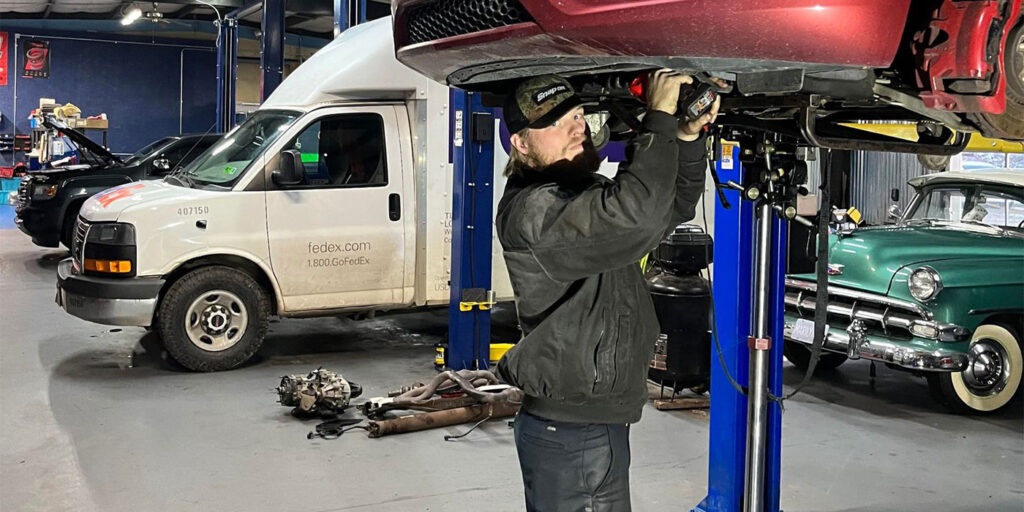
On the better side of the business, Price’s is doing a lot more work on six- and eight-speed transmissions.
“Many shops aren’t fooling with them,” Joshua says, “and the dealerships don’t have anybody that can fix them. So that’s helped out a lot to give us an advantage.”
CVTs have, of course, been steadily growing as part of the market over the last decade, and so naturally have become a bigger part of the workload at Price’s.
“We get a lot of Nissan CVTs,” Joshua says, “but I’ve found that it’s more profitable just to replace them. For what it costs to build one of those, you can buy it from Nissan. We do those little Rogues—probably four or five of those come in a month. And I do a lot of 6L80s. But I also do some work for the local GMC dealership. So we get a lot of late-model GM trucks.
“I’ve had to buy the equipment and have to be able to program it. It’s never-ending on what you have to do to keep up with technology.”
But in a town that Joshua describes as being behind the times, keeping up with that technology can give you an edge.
“It honestly has [given us an edge]. The few shops that were in this town, either the guys had retired or had just moved on and or moved on into general repair. So there’s really not too many other shops in a 40-mile radius that do transmission repair.”
Going the extra mile
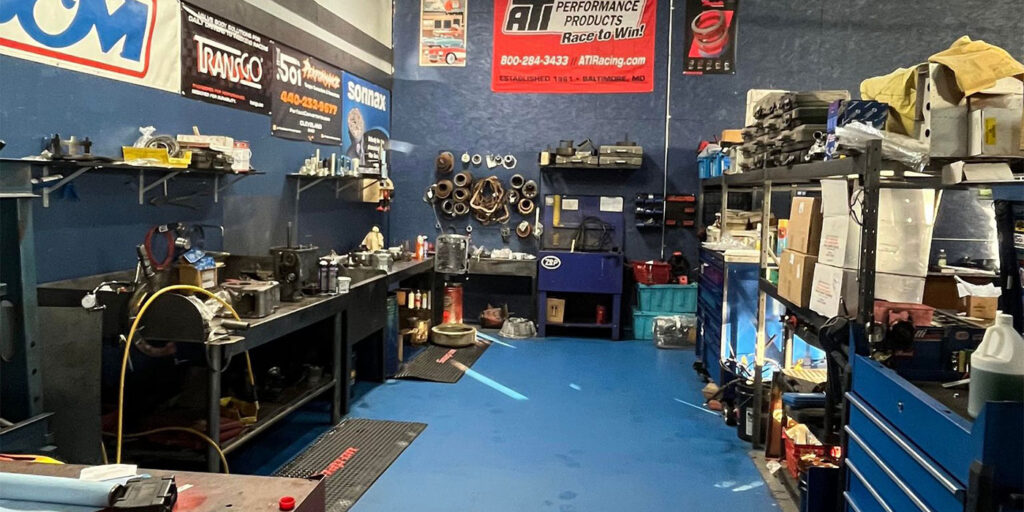
This is a phrase that comes up a lot when Joshua talks about his work. So what constitutes going the extra mile?
“For example,” he says, “if we do a four-wheel drive vehicle, servicing the transfer case is included right off the bat onto the rebuild. If it’s a vehicle that’s known for having whole lines that are rusted—because in this area, we get a lot of salt and stuff on the road—we replace all the known parts that go on with transmission instead of just telling a person, ‘Hey, while we’re here you’re going to need this, you’re going to need that,’ and running their bill up. So I try to give them the best value and I use name-brand quality parts.
“I try to keep my guys on top of keeping the shop clean so that people know that their car is going to be taken care of, especially if we’re working on a brand new vehicle for a dealership or an antique car.
“We just take pride in the work. I always try to tell people, ‘I’ll just come in, do my best and just make it through the day.’ I’m the kind of person, I don’t give up easily. I always tell the customer if we run into a problem vehicle that if they can bear with me or it’s a unique project, we will get to the bottom of it over time.”
A lot of that comes down to communicating with customers, who will be more understanding of a repair that takes some time as long as the details are being communicated to them.
“Facebook’s been good because you can show people a lot more pictures that show where their money is going,” he says. “I’ll take pictures of the transmission as we’re building it and send it to them and explain what’s going on with it. I learned that from a restoration shop that I worked at after my dad closed [his shop]. If you send the customer pictures, they know where the money’s at and they’re more understanding when you tell them what you need to fix in their vehicle. They’re happy to know it’s being done right.”
Joshua also just loves the work, and will often take on interesting and different projects beyond the usual.
“I’ll take on a whole lot of projects a lot of people won’t do with weird overdrive conversions and antique cars, too. It’s a hobby of mine; I’m bad about saying no to these kinds of projects, and it always ends up being an interesting journey to say the least.”
The future
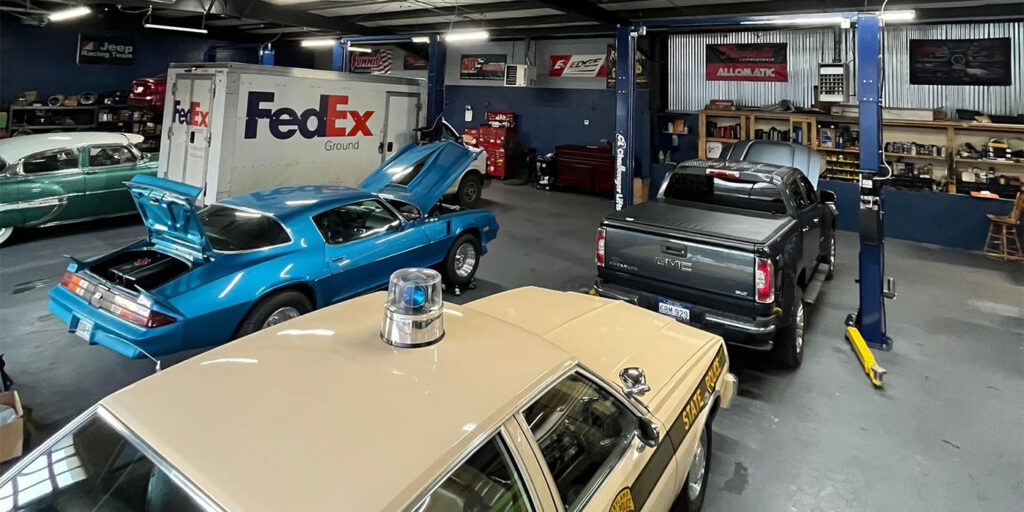
“A while back,” Joshua says, “I was thinking that the transmission business was a dying business, because I would hear that a lot when I priced a job. They’d say, ‘Well, I’ll take that money and just put it down on a new car.’ But right now with the way the car market is, even though five, 6,000 dollars is a lot of money, that won’t buy a vehicle worth much of anything.”
It’s a common story that has been a boon for repair shops everywhere: People are putting more money into fixing their existing cars, because it’s so difficult to find one right now (thanks to the microchip shortage, COVID economic recovery and other economic factors), which has significantly driven up the prices of used cars as well.
“I see that a lot and that’s why I tell my customers, ‘If you buy a car that’s a few years older, you might still be in the same issue unless you’re buying a new car that has a new car warranty.’”
So how does Joshua see the future of the specialty transmission shop?
“Right now, I think the future is going to be bright. With the way that things have been going, I don’t see electric cars being an issue for the mechanical business for the next 15, 20 years, because I still think a lot of people are going to put money in their older cars.”
He adds that with cars becoming more complex as the years go by, it makes it so that shops, who can invest in the tools necessary to fix them more easily, will have the advantage as DIY fixes become more complicated and more costly.
“As long as you stay up on new technology, I think there’s going to be a market for the specialty transmission shop.”

